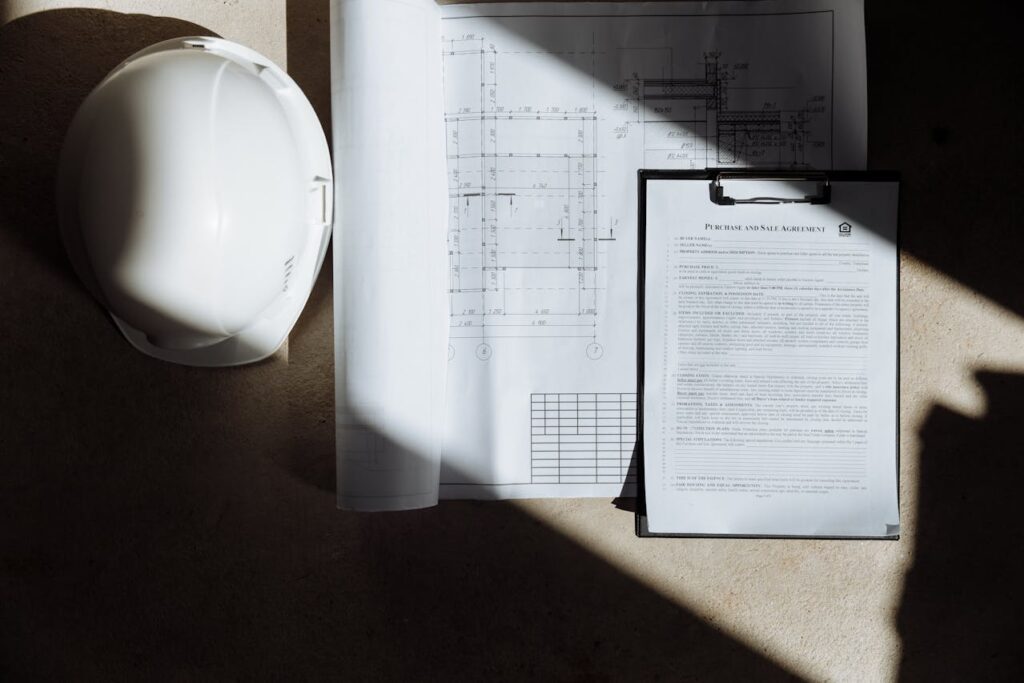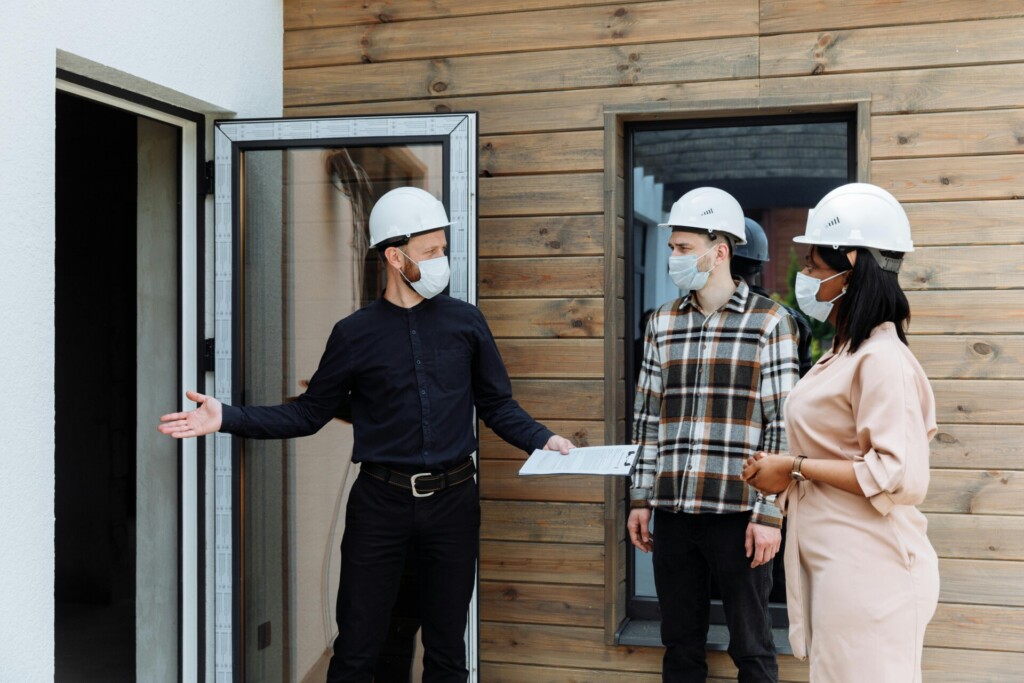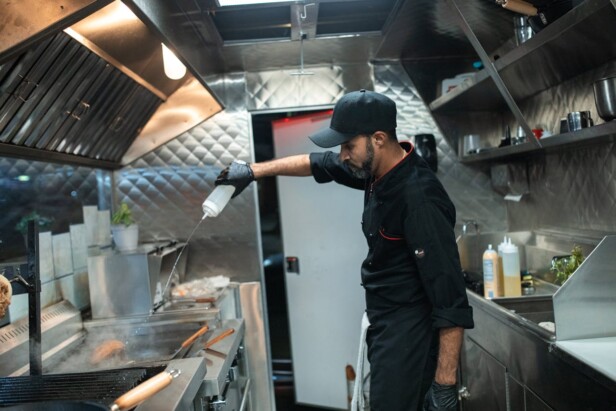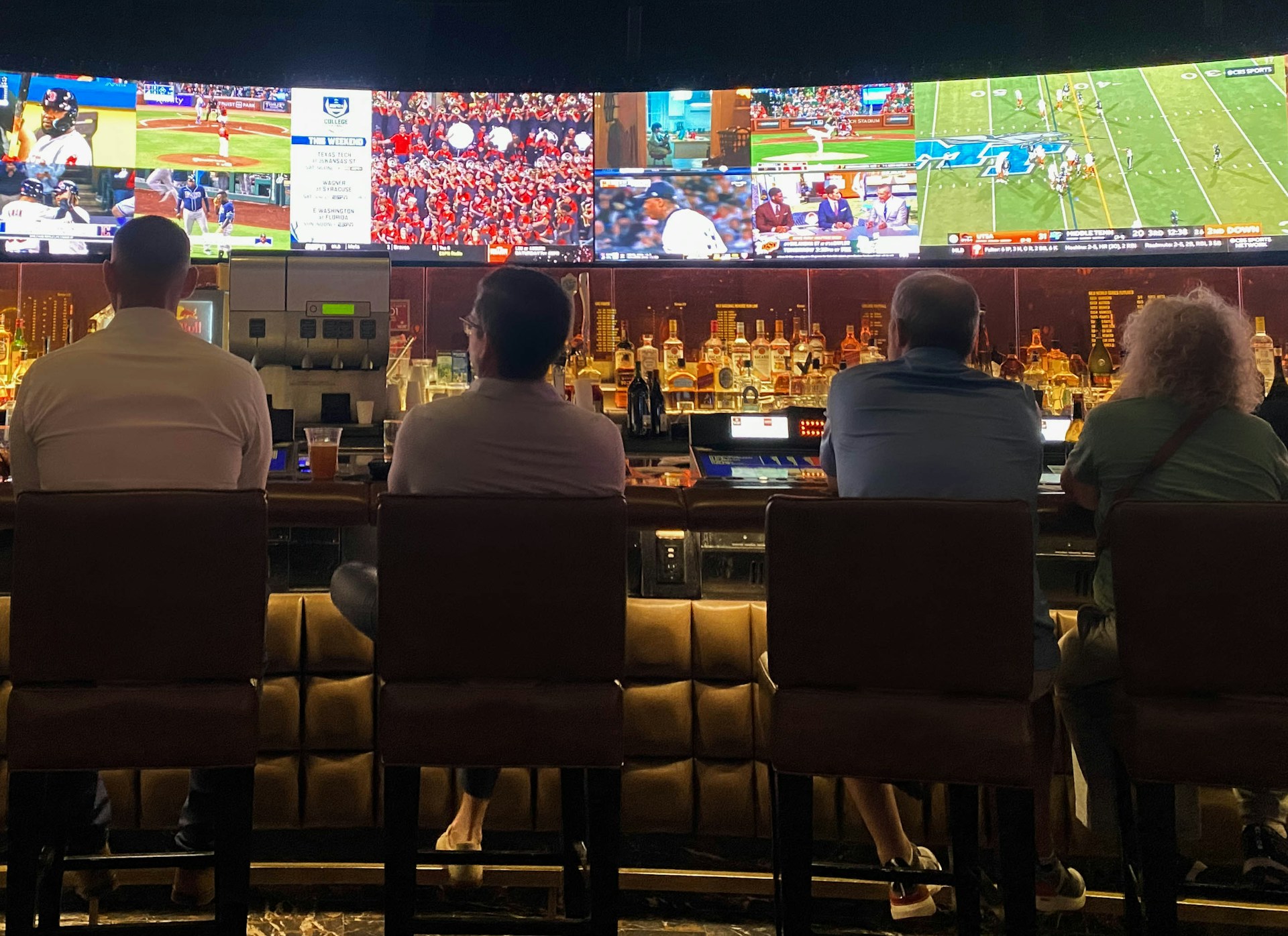Commercial kitchen projects in Houston require more than basic construction permits. A commercial kitchen hood permit in Houston is a mechanical/ventilation permit required for installing or replacing commercial kitchen ventilation systems.
The Houston Permitting Center (HPC) requires a licensed, registered mechanical contractor to obtain this permit, schedule inspections, and keep approved documents on-site. This permit ties directly to fire safety compliance and ongoing hood system maintenance required by the Houston Fire Department.
When Is A Mechanical/Ventilation Permit Required For Kitchen Hoods In Houston?

We require mechanical permits for all commercial kitchen ventilation work in Houston, including new installations and complete system replacements. The Houston Permitting Center’s Mechanical Inspections section specifically lists commercial kitchen hoods as permit-triggering work. This includes the PCC test for commercial kitchen ventilation, which verifies proper system performance under actual operating conditions.
Licensed mechanical contractors must register with the City before applying for any ventilation permits. We see contractors run into delays when they skip this registration step, so we always confirm our HVAC partners have current Houston registrations before starting permit applications.
Permit Fees And Validity Period
The Ventilation (Commercial) permit costs 2% of total job cost plus $46.35, with an additional $33.10 administrative fee. For a $15,000 kitchen hood installation, expect to pay approximately $379.45 in permit fees ($300 + $46.35 + $33.10). We factor these costs into our project budgets early in the planning phase.
Disclaimer: Pricing figures are based on publicly available market data and are intended for general estimation purposes as of October 2025. They do not represent a formal quote from EB3 Construction. Actual costs will vary by project scope, location, labor rates, and material prices.
Permits remain valid for 180 days from issuance. This timeframe works well for most commercial kitchen projects, but we coordinate closely with our mechanical contractors to ensure inspections complete before expiration. Extensions require additional fees and paperwork that we prefer to avoid.
Plan Review Requirements
Plan review requirements depend on project scope and complexity. Simple hood replacements often proceed without formal plan review, while new installations or major modifications typically require submitted drawings. We contact the Mechanical Section at 832.394.8850 early in our design process to confirm whether plans need review.
When plan review is required, the process adds time to the permit timeline. We submit mechanical drawings through ProjectDox after paying permit fees, then wait for review approval before starting installation work. This coordination prevents delays that could impact restaurant opening schedules.
How Do You Apply For The Permit And Schedule Inspections?
The application process for commercial kitchen hood permits in Houston operates through the city’s digital permitting platform. Licensed contractors must navigate specific systems to secure permits, upload required documentation, and coordinate inspection schedules throughout construction.
Submit Application Through iPermits
Access Houston’s iPermits system to begin your mechanical permit application. Complete all required fields in the mechanical permit application form, including project details, contractor information, and system specifications. Submit accurate information to prevent processing delays or permit holds that could stall your project timeline.
Pay the required permit fees through the online payment portal. The system accepts credit cards and electronic checks for immediate processing. Print your permit immediately after payment confirmation, as you’ll need this document on-site during all construction activities and inspections.
Upload Plans Through ProjectDox
Projects requiring plan review receive an invitation to upload documentation through ProjectDox. Submit detailed construction drawings, equipment specifications, and any supporting technical documents. The Mechanical Section reviews these plans to ensure compliance with city codes and ventilation standards.
Keep approved plans and the printed permit on-site at all times during construction. Inspectors will verify that work matches approved documentation, and missing paperwork can result in failed inspections or stop-work orders.
Schedule Required Inspections
During construction, contractors must call in required inspections at specific project milestones. Common inspection types include cover inspections for concealed work, grill seal inspections for ductwork connections, and final inspections before system activation.
Schedule inspections online through iPermits or by phone using the Interactive Response System. Provide your permit number, project address, and requested inspection type. Most inspections can be scheduled for the next business day if requested before the daily cutoff time.
Maintain Compliance Requirements
Ensure your contractor’s license remains in good standing throughout the project. The permit must stay active without any holds from other city departments. Clear any outstanding violations or administrative issues before requesting inspections.
Failed inspections trigger re-inspection requirements and additional fees. Contractors experiencing repeated failures may face administrative fees and enhanced scrutiny from the Mechanical Section. Address inspection comments promptly to maintain project momentum and avoid cost overruns.
What Fire Code Requirements Apply To Kitchen Hood Suppression Systems?
The Houston Fire Department enforces strict fire code requirements for commercial kitchen hood fire suppression systems under HFD LSB Standard 02. These requirements ensure systems protect against the unique fire hazards present in modern commercial kitchens.
We coordinate with approved fire protection equipment companies to maintain compliance with these mandatory inspection schedules. Systems must undergo inspection and service tagging at least every six months and immediately after any activation.
UL 300 Compliance Standards
All commercial kitchen hood fire protection systems must meet UL 300 standards as of January 2008. This standard addresses the fire suppression challenges created by modern cooking oils and high-efficiency equipment.
UL 300 compliance requires wet chemical suppression systems specifically designed for commercial cooking equipment protection. These systems provide superior fire suppression and cooling compared to older dry chemical systems that cannot handle today’s cooking methods.
Class K Fire Extinguisher Requirements
Class K portable fire extinguishers installed in commercial kitchen cooking areas require annual inspection and maintenance. These specialized extinguishers must comply with NFPA 10 and 17 standards.
We ensure these extinguishers receive proper annual service from approved fire protection equipment companies. The service includes inspection, testing, and service tagging to verify operational readiness for kitchen-specific fire hazards.
Hood System Cleaning And Maintenance
Commercial kitchen vent hoods, exhaust ducts, exhaust fans, and related components require regular cleaning and inspection. The frequency depends on usage levels and must prevent excess grease accumulation that creates fire hazards.
We coordinate this maintenance with approved personnel following manufacturer guidelines. Regular cleaning prevents grease buildup that can ignite at approximately 700 degrees Fahrenheit, well below typical cooking appliance temperatures of 1,800 degrees.
Service Documentation And Fire Marshal Procedures
All fire suppression system service requires proper documentation through service tags attached to equipment. These tags must include service dates, company information, and technician credentials.
When systems require repairs or show impairments, we follow Fire Marshal notification procedures. Red tags indicate unsafe or inoperable conditions requiring immediate owner notification and Fire Marshal contact within 24 hours.
How Do Health Department Reviews And Permits Fit Into The Process?

When we coordinate commercial kitchen projects, the Houston Health Department review process runs parallel to mechanical permitting. This dual-track approach requires careful timing and attention to specific submittal requirements that impact your project schedule.
Plan Review Requirements For New Construction And Remodeling
The Houston Permitting Center serves as the central hub for Health Department plan submissions. For new construction or extensive remodeling, we submit plans to the Commercial Plan Review Section on the third floor at 1002 Washington Avenue.
Plan review examines floor layouts, equipment specifications, and room finishes to ensure compliance with food safety requirements. The Health Department charges plan review fees ranging from $46.34 to $1,867.37 depending on project scope, plus an administrative fee.
Pre-Operational Inspection Scheduling
Before any food establishment opens, we schedule a pre-operational inspection through the Houston Health Department at 832-393-5100. This inspection occurs after construction completion but before operations begin.
The inspector verifies that construction matches approved plans and meets all Houston Food Ordinance requirements. We coordinate this timing with final mechanical inspections to avoid delays. Processing time for the final permit takes up to 15 business days after successful inspection.
Food Dealer’s Permit Requirements
No food establishment may operate without a valid food dealer’s permit from the Houston Health Department. The base permit fee is $1,059.50, plus inspection fees of $112.57 or $225.14, and a $33.10 administrative fee.
These permits require annual renewal, with invoices mailed 30-45 days before expiration. Permits must remain posted in public view and cannot transfer between locations or owners. The permit remains property of the Houston Health Department throughout its validity period.
Coordinating Parallel Approval Processes
We manage both mechanical and health department approvals simultaneously to prevent project delays. While mechanical permits address ventilation system installation and fire safety, health permits focus on food safety and operational compliance.
This coordination becomes critical during construction phases when mechanical inspections must align with health department pre-operational reviews. We schedule these inspections in sequence to ensure each approval builds toward final occupancy and operational clearance.
Conclusion And Next Steps

Houston’s commercial kitchen hood permit process requires strategic coordination across multiple agencies and teams. Property owners and developers who align their mechanical permitting, fire safety compliance, and health department approvals from the start will avoid costly delays that can push back restaurant opening dates by months.
The mechanical/ventilation permit through iPermits serves as your foundation. We confirm whether plan review applies to your specific project scope and ensure approved documents remain accessible on-site throughout construction. Our team coordinates mechanical inspections including cover, grill seal, and final inspections while maintaining active permits and clearing any holds that could halt progress.
Fire safety compliance demands ongoing attention beyond initial installation. UL 300 compliance for hood suppression systems requires semiannual inspections and service tagging through Houston Fire Department LSB Standard 02. Class K extinguisher maintenance follows annual schedules per NFPA standards. Coordinating these requirements with Health Department plan review, pre-operational inspections, and food dealer’s permit processing ensures all approvals align with your construction timeline.
Ready to coordinate your commercial kitchen hood permit process? Contact EB3 Construction to align your mechanical installation, inspection scheduling, and ongoing fire safety compliance.




